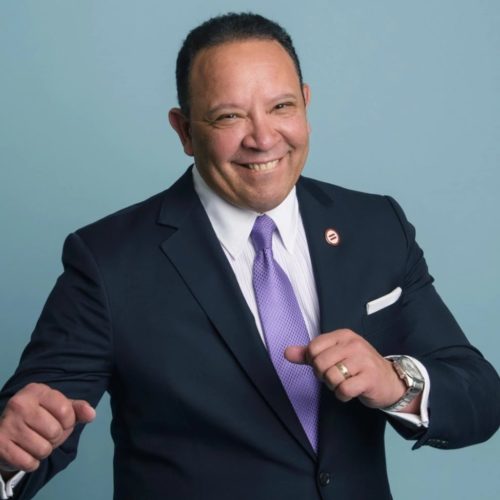On March 23, 2010, President Obama signed the Affordable Care Act and now, 6 years later, 20 million people who could not afford health insurance or were denied insurance because of a pre-existing condition, now have health coverage. African Americans have the highest mortality rate of any racial and ethnic group for cancer and Latinos suffer disproportionately from several illnesses including cervical cancer.
Marc Morial, president and CEO of the National Urban League, chatted with Black Health Matters about the Affordable Care Act, strides made in racial health disparities, and the future of providing access to health care for people of color as a right and not a privilege.
Black Health Matters: What was your reaction in 2010 when the president signed the ACA?
Marc Morial: I was excited about the passage of the Affordable Care Act because I always thought it was a long time in coming—almost 100 years by presidents going back to Teddy Roosevelt. I was excited also about the expansion of Medicaid.
There’s no doubt it could’ve gone farther, but it went as far as the times allowed. If it wasn’t a perfect bill, it was a good bill.
BHM: Beyond reducing the number of uninsured and underinsured, how do you think ACA has helped? How is it reducing racial health disparities?
MM: Each year we retract health disparities. They have begun to slightly narrow. The ACA is, according to our own research, making a difference. The expansion of Medicaid has had a dramatic impact in those states that have expanded it. It’s disappointing the Supreme Court has allowed states, particularly Southern states, to escape expanding Medicaid. In my home state of Louisiana, the new governor expanded Medicaid; the old governor refused. If expanded everywhere, health disparities would narrow significantly.
We could’ve seen more progress but for the obstructionism of some.
BHM: What more could it be doing? In what areas is it falling short?
MM: If you step away and ask what else could be done, we need a broad education campaign. And we need continual emphasis on prevention and disease management. That’s a broader thing. It made some effort to address that by creating a mandatory policy. There’s a lot more work to be done to shift our efforts to disease management, to prevention. That’s a long-term effort. We have to keep a focus on health disparities. The political climate is what is in the way sometimes.
BHM: How much does this election year play a part?
MM: So much depends [on the candidates]. We need candidates who are strongly supportive. Candidates who want to expand Medicaid for all Americans. What I want to see is a president who is committed to full implementation. I don’t think throwing out the ACA will ever work politically. These types of social legislation need time for the kinks to be worked out.
BHM: So what should be next?
MM: What I would like is a broad-based public information campaign that will better educate people about mental health, about risks, about availability of access in health coverage. One can be very intelligent but be very illiterate about health and health issues.
People need some baseline to know how to evaluate what’s good. It’s like the seatbelt campaign of 20 years ago. It worked. I remember a time when no one wore seatbelts. Now you get in your car and you put your seatbelt on. I get in with my kids and if i don’t put my seatbelt on, they immediately say something. When government began to campaign, people scoffed at it. But it worked. Traffic fatalities are down.
Maybe the government does this [ACA campaign] in partnership with non-governmental organizations and partnerships.
We’re doing some health programming at the Urban League. We’re working every day to expand work we do on the prevention side. On the empowering people side. We need to educate people.





